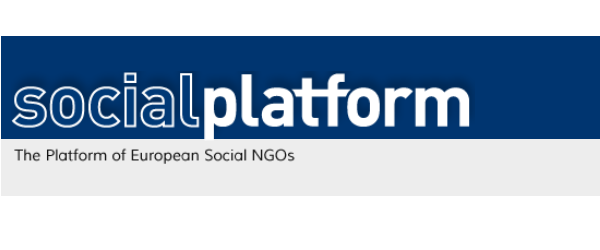[Press release from the Social Platform, Athens, 30 April 2014] Since 2009, the number of people living in poverty and social exclusion has increased by 10 million in the EU, amounting now to over 124 million, or one in four people.
Against this background, the Ministers for Employment and Social Affairs are meeting today at the informal EPSCO in Athens, to discuss among others “Economic recovery and social policies: the role of minimum income schemes”. Addressing the ministers at this occasion, Social Platform called on all member states to put in place accessible adequate minimum income schemes as the basis for high level social protection across the life span and as economic stabilisers.
The right to an adequate minimum income should be recognised as a fundamental right and should enable people to live a life in dignity, support their full participation in society and ensure their independence across the life cycle. To achieve a level playing field across Europe, an EU framework directive on adequate minimum income schemes should be adopted that establishes common principles, definitions of adequacy, and methods. Putting in place such schemes will also contribute to the delivery of the Europe 2020 poverty reduction target.
“Adequate minimum income meets fundamental principles of fairness,” said Heather Roy, President of Social Platform, “millions of Europeans have a strong attachment to the European Social Model. They want to know if EU leaders will commit to making adequate minimum income schemes a reality in all member states or if they are trying to block this.”
Contrary to what is often thought, well-designed, adequate and widely available income support systems do not prevent or discourage a return to the labour market. People receiving unemployment benefits have even greater chances to take-up a job than non-recipients. Ensuring adequate minimum income protection as a tool to fight poverty is also economically sound. Evidence shows that member states with good social welfare policies are among the most competitive and prosperous.
“Adequate minimum income schemes benefit social as well as economic goals”, said Barbara Helfferich, member of Social Platform’s Management Committee and Director of EAPN, “They ensure that people who receive them can remain active in society. As such they represent a huge return on investment while the cost of non-investment has enormous immediate impacts for the individuals concerned and long term costs for society.”
– Read the full recommendations to the ministers for social affairs and employment.
– Read the remarks by Heather Roy in the opening plenary of the ministerial meeting.



